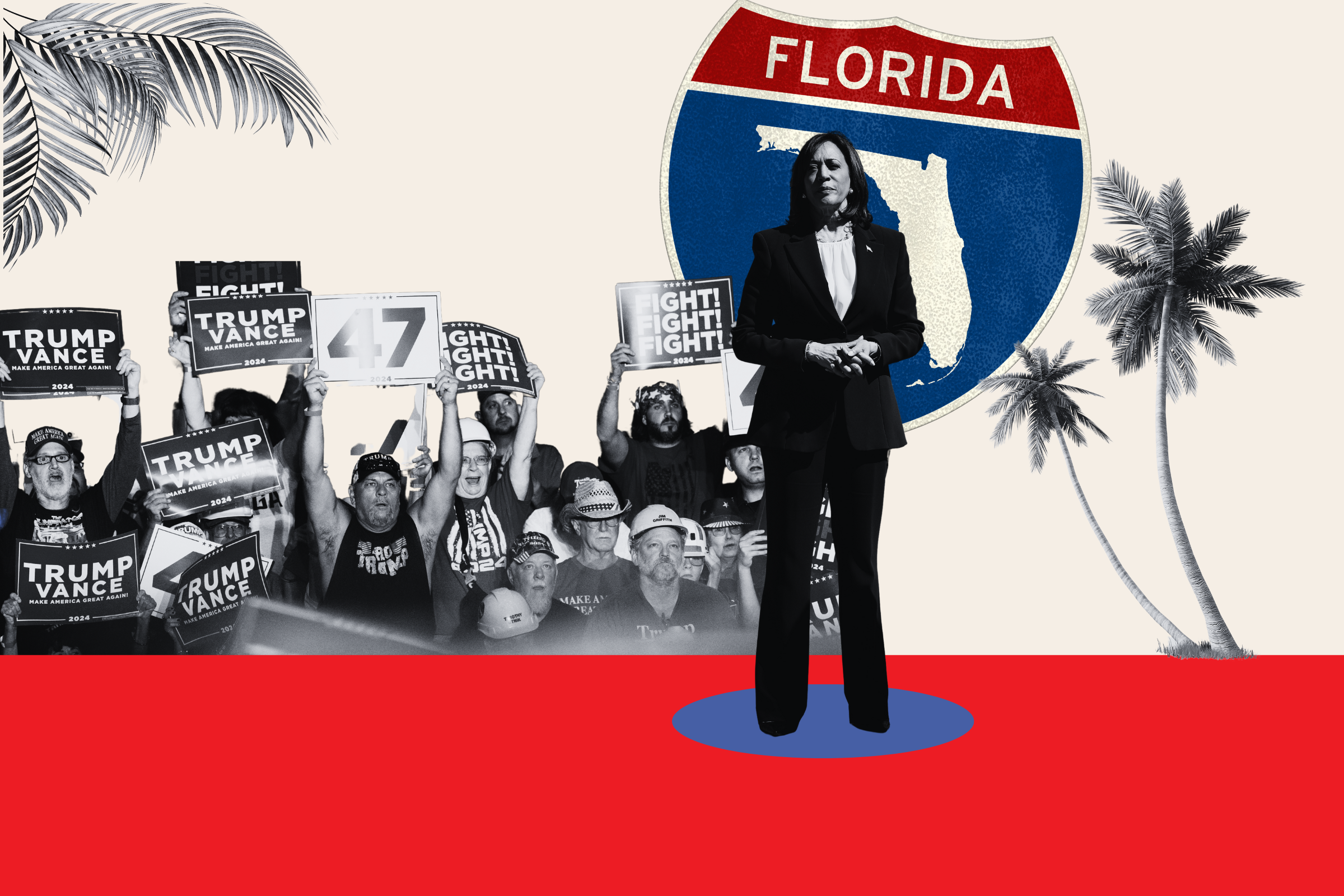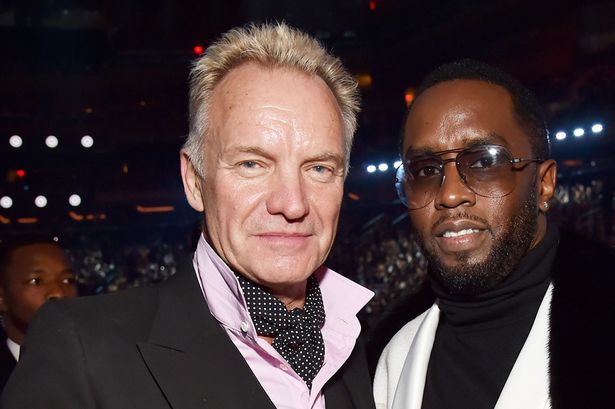Is Florida in Play for Kamala Harris?
Kamala Harris has the chance to pull off a “surprise victory” in Florida during November’s presidential election as a reaction to Governor Ron DeSantis’s socially conservative agenda, and in particular, his six-week abortion ban, according to a prominent political scientist.
Florida, which Barack Obama won in 2008 and 2012, had been widely regarded as a key swing state but has become more reliably Republican over the past few years under the leadership of DeSantis. Donald Trump beat Hillary Clinton in the state by 1.2 percent in 2016, and the GOP firebrand held it in 2020 with an increased 3.4 percent margin despite losing nationwide.
On Tuesday, the Democrats launched their national “Fighting for Reproductive Rights” bus tour in Palm Beach, Florida. Speaking to reporters about Harris, Democratic National Committee Chair Jamie Harrison insisted the vice president “has a shot” in the state, adding: “I keep saying folks, they’re going to be surprised on election night about what happens in the state, that you can’t give up on Florida.”
Photo Illustration by Newsweek/Getty Images
Speaking to Newsweek, the University of Florida’s Cassidy Reller, an expert on U.S. elections, agreed with this assessment, arguing the presidential election coinciding with votes in Florida on abortion and legalizing recreational marijuana use will help Harris.
“I think DeSantis’s overperformance in 2022 overshadows the fact that Biden only lost by 3.4 percent,” Reller said. “Since 2022, DeSantis has implemented a lot of controversial salient culture war issues; there is a chance that he pushed too hard to enact unpopular laws on social issues like six-week abortion bans, LGBTQ+ policy, and controversial education policy and that voters will move away from the Republicans again.
“Some saw the surprise win by Donna Deegan in Jacksonville’s mayoral election last year as evidence of this. Having popular issues like abortion rights and marijuana legalization on the ballot where more voters are aligned with Democrats than Republicans could highlight how out of alignment the modern Republican Party is on these issues, leading some to vote for Kamala Harris,” he said.
Reller argued DeSantis’s convincing reelection during the 2022 midterm elections, with nearly 60 percent of the vote, was a show of support for his coronavirus policies rather than social conservatism.
“I’ve always seen the Republican win in 2022 as an economic response to a lack of COVID shutdowns, not a call to action to enact the social policies DeSantis enacted,” Reller said.
“I think many Floridians do not like the negative attention all these controversial policies have brought to the state, and there is a chance voters react negatively to it in 2024, giving Democrats a surprise victory and potentially a chance to pick up a senate seat.”
In a statement sent to Newsweek,Rachel Reisner, the GOP’s Director of Regional Communications, said: “Florida is Trump country. Thousands of Republicans are fleeing blue states, frustrated by the failures of Harris and the Democrats. In November, Florida voters will send a clear and resounding message: President Donald J. Trump is the only leader with a proven track record of making our nation prosperous and affordable. The movement to Make America Great Again is alive and growing, and it starts here in Florida.”
Newsweek reached out to the Harris presidential campaign for comment via email.
A Florida Atlantic University/Mainstreet USA poll published in August found that 56 percent of Floridians support the state’s proposed abortion amendment, which would establish a constitutional right until fetal viability. However, this is short of the 60 percent needed for it to become law.

JOSEPH PREZIOSO/AFP/GETTY
Speaking to CNN on Tuesday, Democratic Senator Amy Klobuchar insisted Florida was “in play” for Harris in November, in part because the election coincides with the state’s abortion vote.
Thomas Gift, an American politics expert who heads the Centre on US Politics at University College London, told Newsweek that even if Harris doesn’t win Florida, the Trump campaign could be forced to divert resources to the state, hurting it in swing states.
“The mere fact that Trump may have to campaign vigorously in Florida could divert resources from true swing states like Pennsylvania, Wisconsin, and Michigan,” Gift said. “Even if Harris loses Florida, which certainly looks likely, this could cost Trump elsewhere if he’s forced to devote scarce time, resources, and energy into shoring up his lead in the Sunshine State.”
A poll of 500 likely voters in Miami-Dade, Florida’s largest county, conducted between August 22 and 25 found Harris and Trump were tied with 47 percent support each, with another six percent undecided.
However, the most recent polling analysis by election website 538, published on Tuesday, gave Trump a 4.6-point lead in Florida, with 48.2 percent of the vote against 43.6 percent for Harris.







